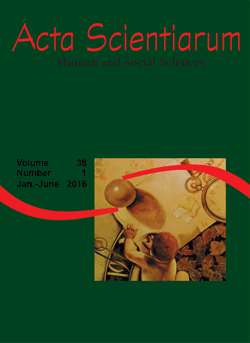<b>School curriculum and the production of afro-descendants in a public school in Campo Grande (MS) with high basic education development index (IDEB)
Abstract
The construction process of Afro-descendants through the school curriculum is analyzed. The curriculum is seen as a plethora of meanings that does not merely address contents but also produce identities and differences. Based on ethnic-racial studies, current paper analyzes interviews with six teachers from a government-run school in Campo Grande MS Brazil with a high basic education development index (IDEB) in the final grades of basic education in 2011. Results showed that interviewed teachers, as products of coloniality, still regard racial difference as something to be ignored at school in the name of equality, and probably they fail to perceive racist relationships. However, coloniality has been questioned by social movements, particularly by the Black Movement. Certain signs of decolonization have been noted in the interviews with teachers, as when, for instance, a teacher, although claiming he had not seen racism at school, said that he instructed students not to tell jokes that would disqualify any human race. Likewise, teachers always state that Law 10.639/2003 contributed towards the decrease of racism at school.
Downloads
DECLARATION OF ORIGINALITY AND COPYRIGHTS
I Declare that current article is original and has not been submitted for publication, in part or in whole, to any other national or international journal.
The copyrights belong exclusively to the authors. Published content is licensed under Creative Commons Attribution 4.0 (CC BY 4.0) guidelines, which allows sharing (copy and distribution of the material in any medium or format) and adaptation (remix, transform, and build upon the material) for any purpose, even commercially, under the terms of attribution.
Read this link for further information on how to use CC BY 4.0 properly.
























